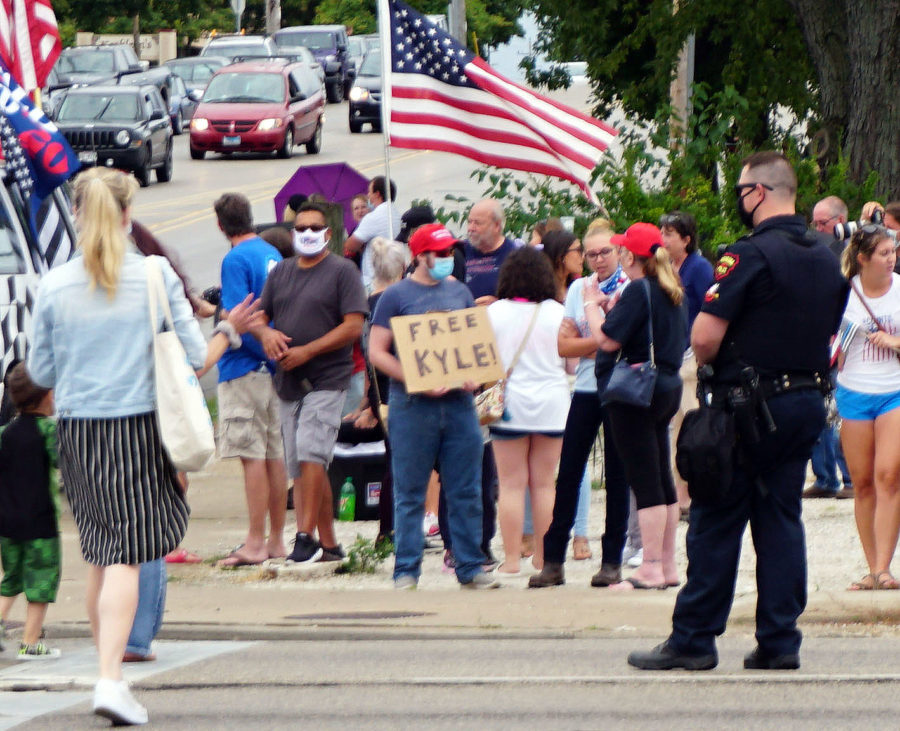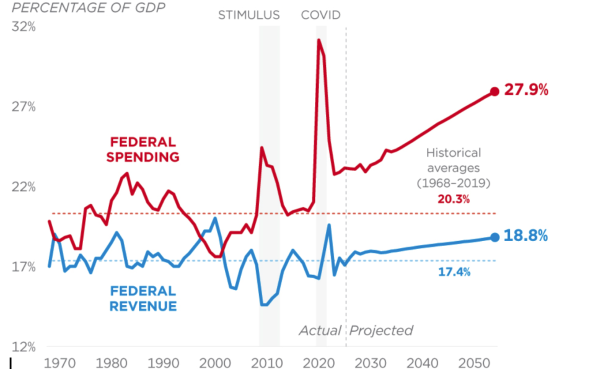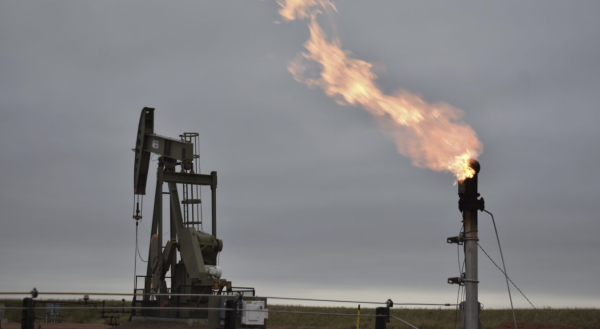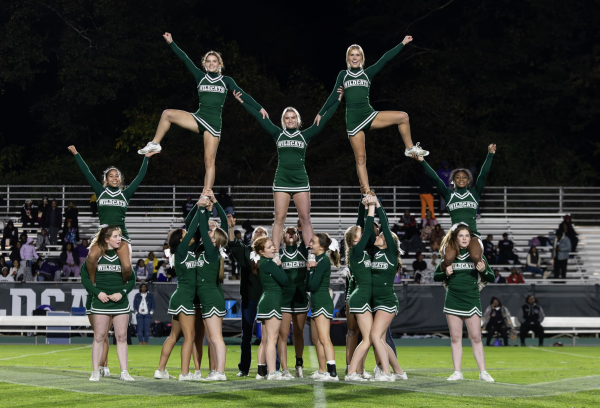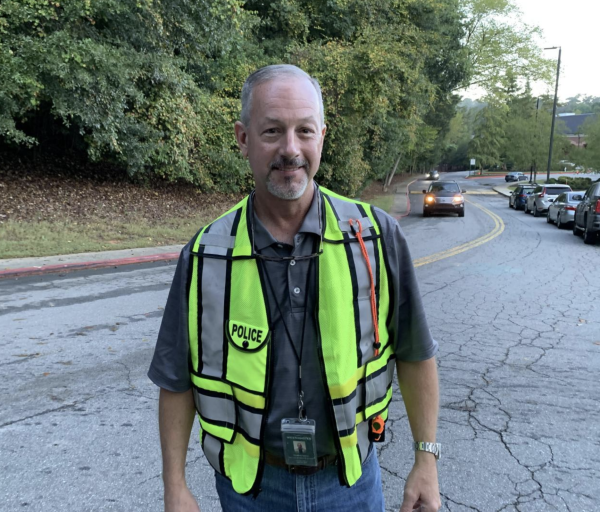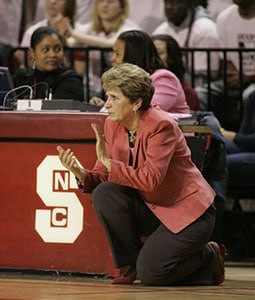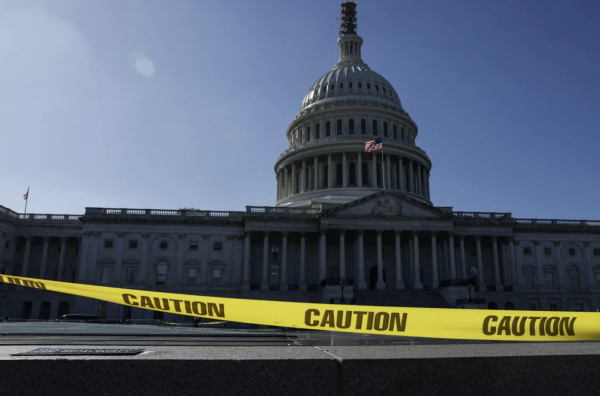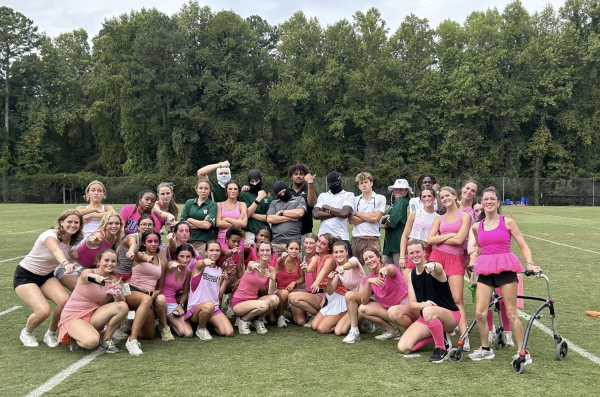Kyle Rittenhouse found not guilty on all charges
On Nov. 19, after a highly controversial and dramatic trial, 17-year-old Kyle Rittenhouse was acquitted of first-degree reckless homicide, first-degree recklessly endangering safety, first-degree intentional homicide, and attempted first-degree intentional homicide. In August 2020, Rittenhouse made his way to a Black Lives Matter in Kenosha, Washington organized in protest in the wake of the Jacob Blake shooting. Three hours later, two men were dead, another was injured, and Rittenhouse faced murder charges.
The Black Lives Matter protest in Kenosha was in response to the shooting of Jacob Blake by officer Rusten Sheskey. Blake had a warrant for his arrest, but when Shekey arrived to detain him, he believed that Blake was pulling out a knife, and he reacted by shooting Blake seven times. Blake died Violence erupted shortly after the protests started; bricks and fireworks were thrown at police officers, who, in turn, responded with tear gas and rubber bullets. Rittenhouse claimed he went to the protests to offer medical aid and protect a car dealership while carrying an AR-15-style semiautomatic rifle acquired from his friend.
“I think it was ill-advised to put a 17-year-old with a gun in that situation,” said George Berry, faculty advisor of the Young Conservatives.
After arriving at the car dealership with his friend, Ryan Balch, Rittenhouse testified that he wandered the streets to offer medical help and put out fires. During this time, Rittenhouse had his first encounter with Joseph Rosenbaum, who had been released from the hospital earlier that day after a suicide attempt. He was at the protest after his fiance kicked him out of their motel room. Rittenhouse testified that “Rosenbaum was walking with a steel chain… he was just mad about something.” Rosenbaum then shouted at Rittenhouse and Balch, “If I catch any of you alone, I’m going to kill you.”
Later that night, Rittenhouse came in contact with Rosenbaum again at an abandoned parking lot where Rosenbaum started running toward him, and Rittenhouse turned to run away. At that moment, Rosenbaum threw a plastic bag at Rittenhouse, and Rittenhouse turned back around and fatally shot Rosenbaum four times. This prompted a crowd to start chasing Rittenhouse as he fled the scene. Amid this chaos, Anthony Huber ran up to Rittenhouse and, in an attempt to stop him, hit him with his skateboard and grabbed at the rifle. Rittenhouse responded by fatally shooting Huber. Another man, Gaige Grosskreuzt, who was also running toward Rittenhouse, halted and put his hands up, in one of which he was carrying a handgun. Rittenhouse shot him in the arm, testifying he thought the gun was pointed at his head. Rittenhouse turned himself in the next day to the police in his hometown of Antioch, Illinois.
“I believe that there is plenty of blame to go around; none of the people involved should have been there,” said Berry.
The trial of Kyle Rittenhouse began on Nov. 1, where he faced five charges: first-degree reckless homicide, first-degree recklessly endangering safety, first-degree intentional homicide, first-degree recklessly endangering safety, and attempted first-degree intentional homicide. The trial started off with an emotional first day as Kyle Rittenhouse broke down into tears on the stand while recounting what happened the night of the shooting. This crying sparked controversy over whether this was a genuine reaction or a premeditated response. This reaction is said to have swayed the jury from their initial perspective.
“It did not change my initial perspective of Kyle and what I think the verdict should be,” said Young Democrats leader senior Emilie Hankla. “I do think that he appeared very regretful, and I think that he was immensely prepped.”
The defense’s argument was that Rittenhouse was legitimately concerned for his safety and thought his life was in danger. In closing arguments, defense attorney Mark Richards emphasized, “Kyle Rittenhouse shot Mr. Rosenbaum because he was attacking Kyle. Every person who was shot was attacking Kyle.”
The prosecution in response argued that Rittenhouse provoked this violence and therefore lost his right to claim self-defense. Rittenhouse made his view on what happened very clear. “No, I don’t regret it; I would have died that night if I didn’t,” said Rittenhouse. “I feel like I had to protect myself.”
Within the Westminster community, there is a range of opinions on the nature of Kyle Rittenhouse’s actions.
“I don’t think he is guilty of murder,” said Berry. “I think he is guilty of being very foolish.”
Meanwhile, Hankla suggested that the root cause was related to the lack of adequate gun laws.
“I think this is a really interesting look at what self-defense is,” said Hankla. “The reason they were chasing him was because of his AR-15; the reason they attacked him is because of his AR-15; the reason he shot them was because of his AR-15, so everything connects back to the gun.”
Ultimately, Kyle Rittenhouse was found not guilty on all charges, sparking a series of mixed emotions throughout the country and the Westminster community. Those against the verdict saw it as an injustice and a reflection of an unfair legal system. On the other hand, many see Rittenhouse as a hero. He was invited to meet with former President Trump, has been offered multiple jobs, and was gifted a replica of the AR-15 he carried that night.
“It really shows how flawed our justice system is,” said freshman Sara Dixon. “I think that Kyle Rittenhouse is guilty of murder. Even if he was acting in self-defense, he provoked that violence and took multiple lives.”
Killer or hero, the lives of Kyle Rittenhouse and his three victims changed forever that night.
